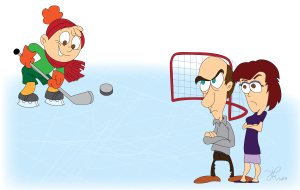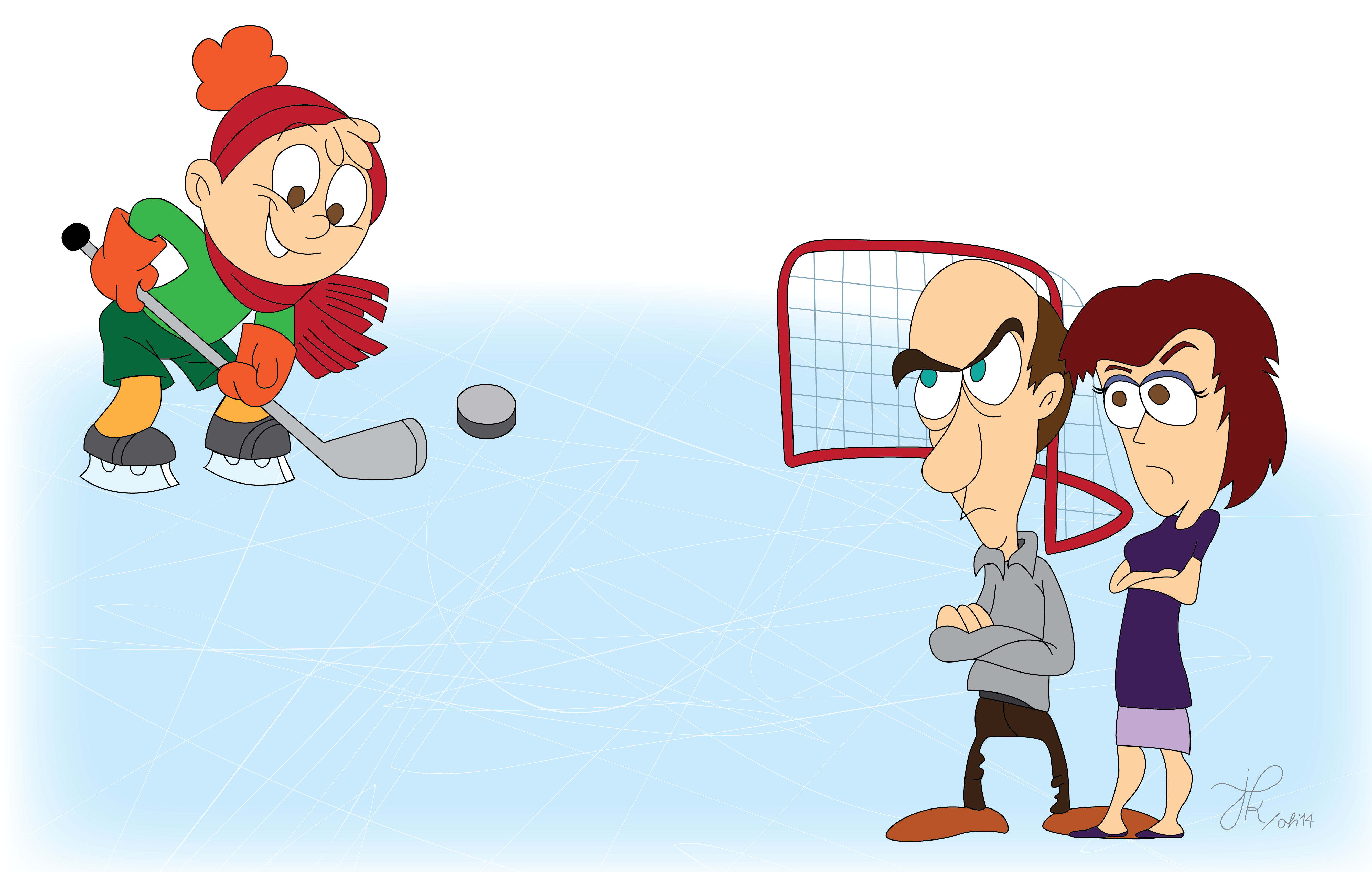There is a predictable stereotype for every minor hockey team which is to have at least one or two crazy hockey parents in the stands. Although we laugh and joke about this, the truth is that there are far too many parents pressuring their kids to compete at a level they are incapable of reaching. Far too many parents believe that their kid has what it takes to be the next Sidney Crosby. They feel that this justifies pressuring and working their child until they no longer have a will to play hockey.

Concordia Stingers head coach Kevin Figsby, who has 30 years of coaching experience working for Hockey Québec and Hockey Canada, has seen his fair share of hockey parents who pressure their kids.
“I’ve seen a lot of kids that can’t handle the pressure that their parents put on them. I’ve seen what it does to the kids, and that’s the worst part,” he said.
“I don’t think parents realize that they put that amount of pressure on their kids. It’s unfortunate, because a lot of the times in those situations, those kids are turned off [by] the game. And that’s the sad part.”
Crazy hockey parents are in no way a new phenomenon, and most people who have played minor hockey can recall several incidents involving parents acting inappropriately.
Former president of Hockey Calgary, Todd Millar, is no stranger to these parents. In his book Moron: The Behind the Scenes Story of Minor Hockey, Millar writes: “For whatever reason, near that hockey rink, [parents] think that aggressive, asinine behaviour is acceptable, for those few moments of watching their son or daughter play the game of hockey. Would they act like that in front of their boss, or at a family function? I hope not. But they do act that way at a hockey rink.”
As a minor hockey player, Concordia’s star forward, Olivier Hinse, has also witnessed his fair share of crazy hockey parents.
“I’ve seen a lot of parents chirping each other from one end of the rink to the other, and almost getting into fist fights.”
He’s also been witness to parents yelling at coaches or trying to coach from the stands. “There’s a lot of parents who are taking too much control of their kid, and they don’t let the coach do their job.”
The goal of most “crazy” hockey parents is to turn their child into a superstar. They go about this by trying to control every aspect of their child’s hockey career, which takes away the fun of the game. Kids no longer want to play the game when their parents are shouting at them or the coach, whenever they are at the rink.
Stingers defenceman, Youssef Kabbaj, has also seen first-hand what an over pressuring parent can do to a young athlete.
“There was a guy who played in the Quebec Major Junior Hockey League. He was drafted in the second round, and he was a really good player, “ Kabbaj said. “But his dad was so intense on him, and he would literally demand perfection from him. The guy would score two or three goals, and it was never good enough for his dad.”
“It ended up hindering his game, because he’s not where I thought he would be now. Parents end up focusing so much on performance, whereas the child doesn’t have the passion to play the game anymore.”
Kabbaj feels that supportive parents help their kids excel, while overbearing parents hinder a player’s growth and development.
“My dad was tough on me. He was demanding, but what he demanded was intensity. He didn’t care if I was going to be the next Sidney Crosby or not.”
Figsby echoes Kabbaj’s point of view, in that the parents who want their kids to be future NHL superstars end up holding their kids back.
“My best players tend to have had great parents growing up. The ones who came to every game were super positive and encouraging, who would do anything for the team and will not say anything to their kid except ‘Did you have fun?’ The kids that struggle tend to have the parents that are verbally pressuring or manipulative.”
It is natural for parents to want their children to be the best that they can be. It is also important for parents to support their children, and to help them achieve their goals. There is a fine line between support and pressure, and many parents fail to distinguish between them.
“To help their children grow, parents can’t impose stuff,” Kabbaj said. “They have to evaluate where their kid is, and then see how they can help support them to be the best that they can be. In the end, Sidney Crosby is in the NHL because he worked hard and he wants to be there. I don’t think he would be there if he didn’t want to be.”




